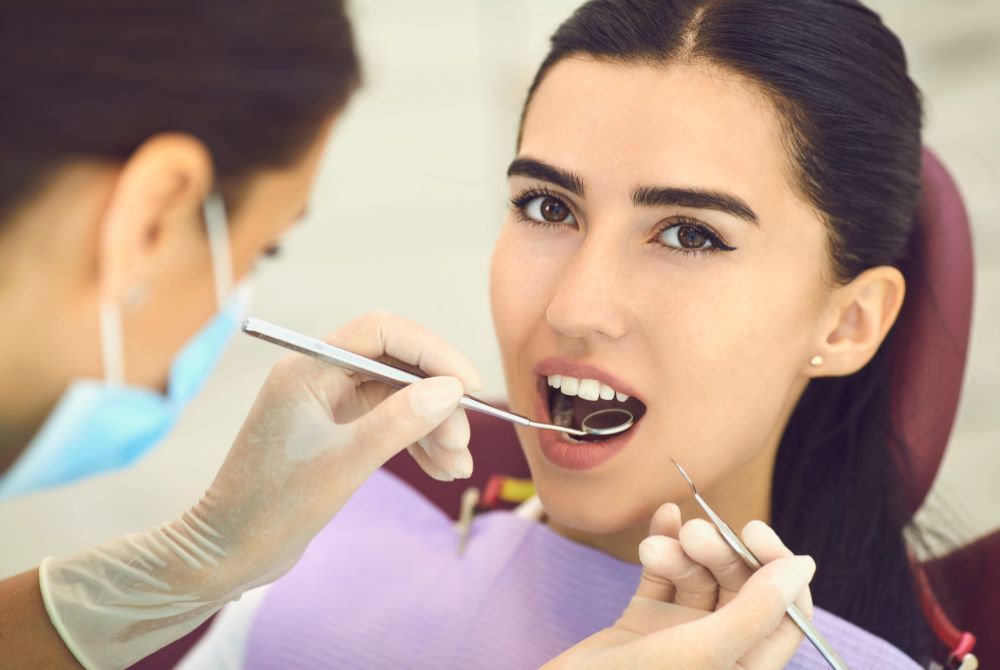When it comes to illness, we usually focus on the symptoms and the effects of the disease on the body, such as fever, fatigue or cough. However, the impact of illness on oral health, especially teeth, is often overlooked. The connection between systemic infection and dental health is essential, and understanding this can help us take better care of our overall health. We will look at what happens to your teeth when you are sick and offer advice on maintaining good oral hygiene during illness.
- Dry Mouth:
A common side effect of many illnesses, especially those accompanied by fever and medications, is dry mouth. When dehydration is caused by disease or taking certain medications, the mouth produces less saliva. Saliva plays a vital role in neutralising acids, cleaning teeth and preventing the growth of harmful bacteria. Without enough saliva, the risk of tooth decay and gum disease increases.
Tip: Drink water throughout the day to stay hydrated. Consider using sugar-free lozenges or mouthwash to relieve dry mouth symptoms if dry mouth persists.
- Weakened Immune System:
Illness can weaken your immune system and make you more susceptible to bacterial infections, including infections affecting your teeth and gums. While your body is busy fighting off illness, it may not be able to effectively fight off oral bacteria.
Tip: Maintain oral hygiene during illness, including regular brushing and flossing. It will help reduce the risk of bacterial buildup and gum inflammation!
- Increased Sugar Consumption:
Comfort foods and sugary cough drops can be tempting during illness. Unfortunately, sugar can feed harmful oral bacteria, leading to tooth decay and cavities. In addition, some medications may contain sugar or acids that can erode tooth enamel.
Tips: Choose sugar-free cough drops and avoid sugary snacks and drinks. Rinse your mouth with water after taking medication to minimise the impact on your teeth.
- Acidic Medications:
Certain medications, such as aspirin or vitamin C supplements, can be acidic and cause tooth enamel erosion. Taking these medications regularly during an illness can increase the risk of tooth sensitivity and decay.
Tip: If possible, take acidic medications with meals to reduce their contact with your teeth. You can also discuss alternative medicines with your healthcare provider.
- Compromised Oral Hygiene:
Neglecting your oral hygiene routine when you’re not feeling well is easy. Brushing and flossing can seem daunting when you’re not feeling well. However, ignoring these practices can lead to plaque buildup and inflamed gums.
Tip: Strive to brush and floss at least twice a day, even when you are not feeling well. Consider using a soft-bristled toothbrush if you have a sore throat or mouth.
- Medication Side Effects:
Some medications, including antibiotics, can cause changes in oral health. For example, they may cause oral thrush (a fungal infection of the mouth) or discoloured teeth.
Tip: If you notice any unusual symptoms in your mouth while taking your medication, consult your dentist or healthcare provider, who will be able to guide you on how to manage these side effects.
- Stress and Teeth Grinding:
Illness can cause stress, and stress can manifest itself in various ways, including teeth grinding (bruxism). Teeth grinding, especially at night, can lead to worn tooth enamel, jaw pain and headaches.
Tip: If you suspect you are grinding your teeth, consider using a mouth guard, especially at night, to protect your teeth from damage!
It is vital to recognise the potential impact of disease on oral health. Maintaining good oral hygiene, staying hydrated, and being mindful of your medication choices can help mitigate these effects. Remember, oral health is an integral part of your overall health, and taking care of your teeth during an illness is a small but vital step toward a full recovery. Feel confident to contact Ideal Smile Dentistry for an expert opinion.

